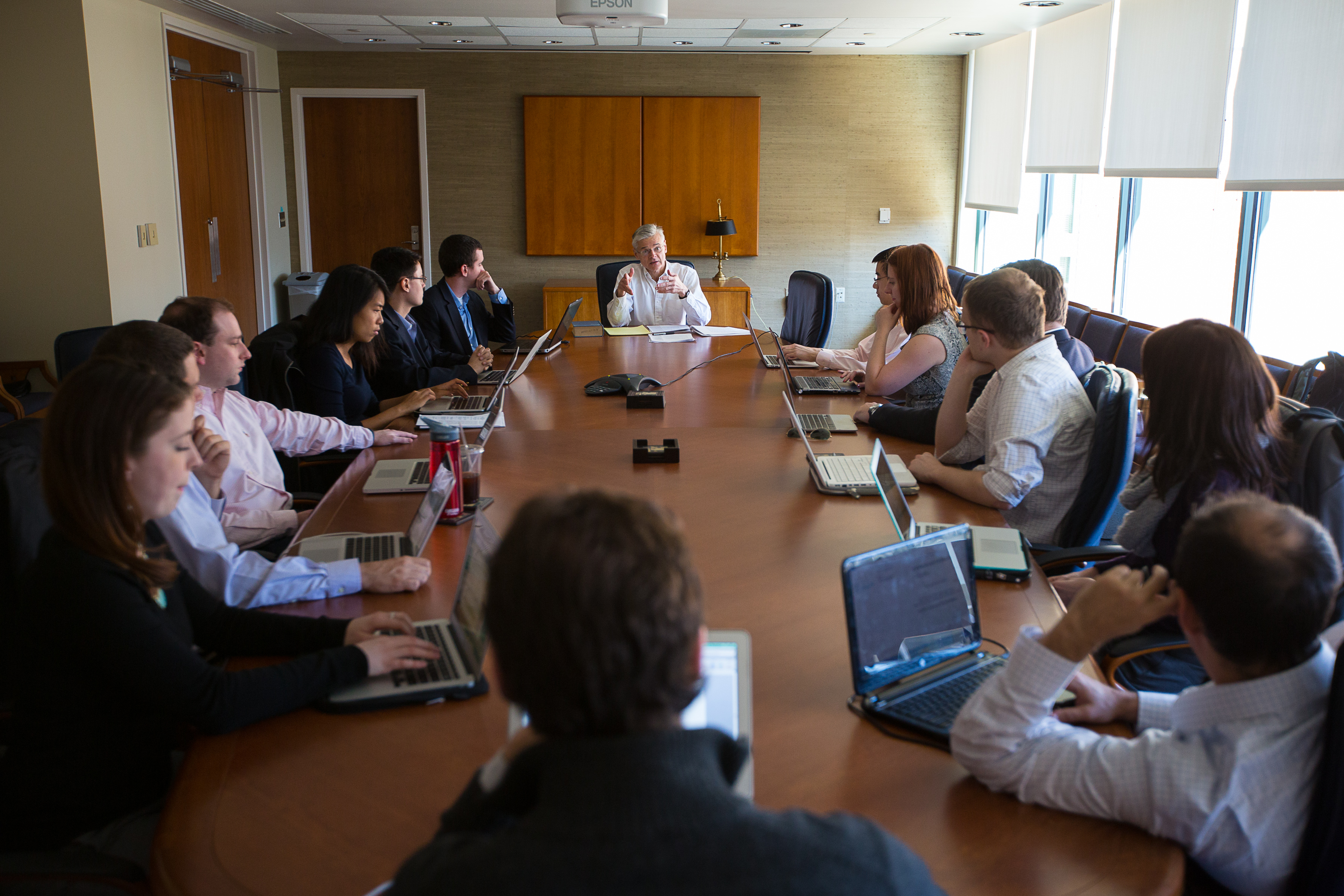The Supreme Court on Monday delivered a unanimous decision in favor of a Florida man represented by the Supreme Court Litigation Clinic at the University of Virginia School of Law.
Henderson v. United States involves the “felon-in-possession” statute, which bans felons from possessing firearms. In the case, former U.S. Border Patrol agent Tony Henderson had provided his 19 guns for safekeeping to the FBI in 2006, during his prosecution for felony drug offenses. After serving six months in prison, he tried to arrange to transfer the guns to someone who would pay him for them.
“The government refused, saying that to do so would somehow attach constructive possession of the guns to our client,” said U.Va. law professor Daniel Ortiz, director of the clinic.
Henderson v. United States is the 12th case that the Supreme Court Litigtion Clinic has taken to Washington, and the fourth case Ortiz has argued before the court. The clinic offers students the chance to handle actual cases, from the seeking of Supreme Court review to briefing on the merits.
Ortiz, who argued the case at the Supreme Court on Feb. 24, said he wasn’t surprised at the unanimous decision.
“After the argument, we couldn’t count a single justice who was clearly on the government’s side,” he said. “It’s a wonderfully clear, concise, direct opinion. It repudiates the government’s odd view of what counts as possession pretty clearly – it doesn’t have any difficulties in getting to that point. It’s a great example of Justice [Elena] Kagan’s clear, direct style.”
Ortiz said the government’s interpretation of the statute meant that in victimless crimes like Henderson’s, it was “harder for the felons to support their families by denying them the economic value of this type of property that they can no longer possess.”
“In the case of crimes with victims, it has the added perverse effect of making it harder for victims to receive reimbursement from the felons for any injuries they’ve suffered from the crime,” he added. “At bottom, it’s a clear victory for the little guy.”
To sell his firearms, Henderson has to return to the district court and convince the judge that he will have no control over the person to whom the guns are eventually transferred, Ortiz said.
Henderson’s firearms, which now number about 15 after the government returned some property to him, are valued at $3,500 to $7,000.
“The court approached it as we encouraged them to, as a property case, rather than a criminal case,” Ortiz said. “From that perspective, the answer’s pretty easy.”
Ortiz said the Supreme Court’s decision will have a broad impact.
“There are over a million people convicted of felonies in this country every year, and in many cases the value of the firearms can be quite high,” he said.
Media Contact
Article Information
May 20, 2015
/content/uva-law-clinic-racks-another-supreme-court-victory

